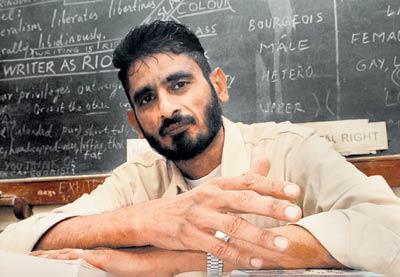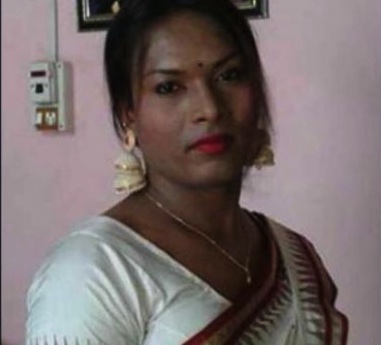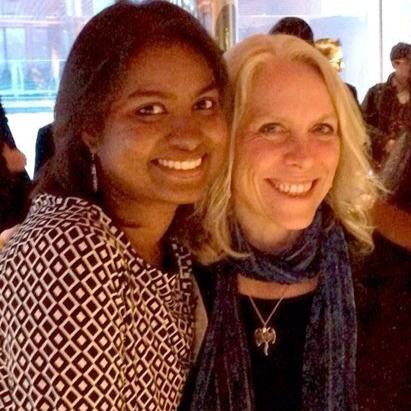4th National Queer Conference 2015 (Kolkata) – Call for Abstracts
Sappho for Equality is organizing the fourth National Queer Conference titled Femininities and Masculinities to be held between 11th to 13th September, 2015 at the H. L. Roy Auditorium, Jadavpur University, Kolkata.
‘Femininities’ and ‘masculinities’ are terms that are variously theorized, contested and claimed by academics as well as activists. Central to such theorizations, contests and claims are attempts to historicize the terms, (re)define their cultural parameters, and highlight multiple meanings and practices associated with them. In recent times, the Indian academia has witnessed a spate of conferences on masculinities. Yet, how do we talk of masculinities without interrogating their charged negotiation/inter-relation/friction/connection with femininities?
On a different note, with the Supreme Court upholding one’s right to gender expression (National Legal Services Authority v Union of India), a wide spectrum trans* subjectivities have been visibilised while many others remain invisibilised. So then, how is law enabling/disabling construction of femininities and masculinities? With these contemporary developments as backdrop, this conference seeks to bring activists and academics together to discuss and dialogue about the meanings and practices associated with femininities and masculinities. What are the roles of femininities and masculinities in the production of sex and gender? What role does sexuality play in their productions? How do ‘female masculinities’ and ‘male femininities’ (re)order and/or (re)produce power differentials? How are femininities and masculinities lived and performed through time, place, and space? How are femininities and masculinities interrogated and redefined in activist spaces? What are the exclusions and illegibilities within stereotypical as well as reordered understanding of femininities and masculinities? Within a neoliberal landscape that produces its own market friendly versions of queer lifestyles, how do femininities and masculinities negotiate the market? These are some questions we will seek to address around the following subthemes, including, but not limited to:
Session I – Politics of naming genders: How and why do we name our gender(s)? How is that name discursively produced? Do names have limits, foreclosures? Does the recognition of the third/trans gender influence these limits and/or foreclosures?
Session II – Gender and sexuality as border zones: How are borders between genders conceived? Are they rigid or porous? Are there borders to be passed to reach one’s ‘right’ gender and what role, does sexuality play in this passage? How is one’s sense of gender and sexuality contested in various spaces?
Session III – Fractures in hegemonic femininities and masculinities: How do we read dominant femininities and masculinities? Is it possible to read fractures, disruptions in the ways they are produced, performed? Can they be queered or is queerness in-built in them? How does power operate through them?
Session IV – Femininities and masculinities in the nation-making project: Is there an ideal femininity and ideal masculinity that the nation actively produces? How is it constituted? What are its constitutive others? Have there been changes in these constitution/s? How do gender queerness and different sexualities engage with such constitution/s? How does one locate neoliberal markets in these constitutions?
Session V – (De)constructing femininities and masculinities in popular culture: How do we read the way femininities and masculinities are constructed and produced in films, literature, theatre and other popular media? What are the continuities and disjunctions within popular culture? Are there differentials in the potential of different mediums of popular culture in queering gender binaries?
Session VI – Female masculinities and Male Femininities: How are female masculinities and male femininities experienced and lived? What are their everyday performances? Do their sexualities have a bearing on their gender performances? What would female masculinities and male femininities mean for the sexed body? How do they (re)order power? Does the neoliberal market also produce/co-opt/resist/reshape these femininities and masculinities?
Session VII – Femininities and Masculinities in Activism: What roles do femininities and masculinities play in social movements? How have women’s movements and queer movements interpreted/questioned/challenged different masculinities and femininities? Are there points of intersections? Are there commonalities/differences in standpoints? Has academic activist collaborations influenced these standpoints in any way?
Session VIII – Intersectionalities: How are femininities and masculinities experienced/negotiated through class, caste, ethnic, religious and other specificities? Do such locations and specificities by themselves and in combination influence the power of negotiation? Are these aspects somehow woven into hegemonic gender notions also, or do they signify a radical shift, a point of departure?
Session IX – Performing Femininities and Masculinities: Queering femininities and masculinities through live performance such as plays, dance, music and similar cultural forms.
We are inviting abstracts along with a short bio-note from students, research scholars, teachers, development architects, and activists on any of these sub themes. The abstracts should reach us by 23rd May 2015 at [email protected]. The abstract should be between 250 to 300 words. Papers in English and Bengali will be accepted. Selected participants who submit their papers in Bengali are requested to submit an English translation as well. There is no registration fee. Outstation participants will be provided with AC 3-tier train fare and accommodation on twin sharing basis. Authors of selected abstracts will be communicated by 23rd June 2015. The deadline for completed papers is 15th August 2015.
Please note: Papers to be presented at the conference should be unpublished before. Due to logistical constraints, Sappho for Equality can only bear costs of travel, food, and accommodation for one outstation participant per paper/performance. Sappho for Equality may publish the papers in future. In that case the authors will be informed if their papers are selected for publication. For further clarification, please contact: Poushali Basak (Ph: 9477171817 / Email: [email protected]) or at 033-24419995 (Tuesday-Saturday 12-8pm & Sunday 12-6pm).




